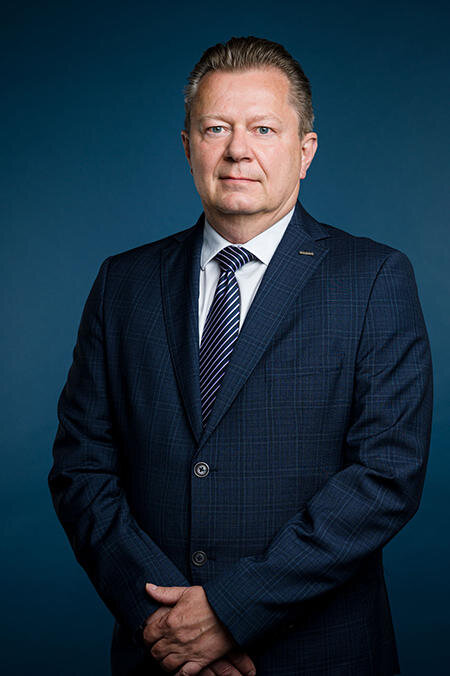We are Shaping the Future! Showcasing Success Stories as We Innovate for a Sustainable Tomorrow

ŃĆĆ
What matters now is translating these words into action.
Ahead of the gathering, Egyptian President Abdel Fattah al-Sisi, the host of COP27 said the conference would be an opportunity for the world to move "from negotiation to implementation" and embark on a greener future. Keeping the focus on outcomes is relevant because lofty language about ESG, inclusion and diversity has become commonplace at high-level climate discussions. However, going from talk to walk requires top-down leadership and bottom-up initiatives to drive sustainable actions.
OMRON, the Japanese technology company, is one company building such a culture.
ŃĆĆ
Since its founding in 1933, OMRON has produced unique technologies spanning factory automation to healthcare devices. These innovations are driven by its founding principle: "To improve lives and contribute to a better society".
Guided by this purpose, the company encourages employees to set their own goals for solving social issues in the OMRON Global Awards (TOGA) programme. Teams behind the shortlisted initiatives, selected from thousands of entries worldwide, gather at company headquarters in Kyoto every year to share their projects.
Past winning initiatives have included efforts to develop the world's first wearable blood pressure monitor to prevent cardiovascular events and reduce the number of industrial robot accidents.
"I started TOGA because I wanted to expand the circle of resonance by sharing stories of each employee's initiative to put OMRON principles into practice and draw out the passion and potential of our employees," says Yoshihito Yamada, the president and CEO of OMRON.
ŃĆĆ
Last year's winning entry -- "Eliminate marine plastic waste!" -- captures Yamada's vision well.
The project aimed to reduce plastic waste by developing a technology for wrapping consumer items using sustainable materials. Project leader Miho Nishide, who was developing temperature controllers at the firm's components division, approached over 80 device makers and research institutes to conduct demonstrations and experiments on her concept.
The result was the Perfect Sealing solution. The innovative solution combines OMRON's sensing and control technologies to reduce temperature changes at the bonding surface to a tenth of previous devices, virtually eliminating packaging defects. This feature allows manufacturers to switch from plastic to more sustainable materials such as Kraft paper, thinner packaging and biodegradable film, which are sensitive to heat levels. Over 350 manufacturers have already adopted the Perfect Sealing solution, saving an estimated 1m tonnes of plastic waste.
"Solutions to social issues are not easy to find, but OMRON encourages its employees to take on new challenges. We worked tirelessly to find a breakthrough by bringing together knowledge from within and outside the company," says Nishide.
ŃĆĆ
On the factory floor, automation is not just about maximising efficiencies in resource and energy use - thereby reducing the environmental footprint of manufacturing.
At OMRON's healthcare plant, a multidisciplinary team from the company's industrial automation and healthcare divisions is working to unlock a next-generation energy productivity solution.
Based on data-driven automation that visualises production volume, quality and energy consumption at their respective production bases, the solution - this year's TOGA winner - demonstrates the potential for energy reduction. Through such energy-control technology, the company aims to realise more sustainable manufacturing in the future.
Automation can also address social issues, such as the diversification of consumer needs, a shortage of skilled workers and soaring labour costs.
For example, in healthcare, OMRON's automatic blood pressure monitors (which have sold over 300m units globally) and other healthcare devices continue to evolve. The goal is to create services which automatically monitor and predict cardiovascular events and asthma attacks, thereby contributing to extending healthy lives.
And to fight climate change, the company is expanding its line-up of storage battery systems, combined with solar power systems, to facilitate distributed, renewable energy. As a result, its greenhouse gas emissions are set to fall by 53 per cent between FY2016 and FY2024, and scope 3 by 18 per cent for the same period, with a target of net-zero operational carbon emissions by 2050.
More recently, the company joined the EP100 -- a global initiative led by the international non-profit Climate Group -- bringing together over 120 energy-smart businesses committed to measuring and reporting on energy efficiency improvements.
"OMRON continues to deliver on its 'Shaping the Future' commitments based on our mission to improve lives and contribute to a better society. This includes combatting the social issue of climate change, by working to achieve global climate neutrality. We do this by empowering people through automation. We are pioneers, committed to solving social issues through business. As such, OMRON became the first Japanese manufacturer to join the EP100 - an initiative to address climate change by improving energy efficiency - pledging to double its energy productivity," says Preben Olsen, president, OMRON Management Center of Europe. "The EU - with its European Green Deal - is at the forefront of the global mission to achieve climate neutrality. OMRON's European office serves as the driving force behind our global efforts to transparently disclose to the world how we deliver on our climate change commitments and accomplish our ambition of net zero carbon emissions."
 Preben Olsen, president, OMRON Management Center of Europe
Preben Olsen, president, OMRON Management Center of EuropeŃĆĆ
Leading ESG rating organisations have recognised OMRON's ambitious sustainability targets. Dow Jones Sustainability World, FTSE4Good and MSCI ESG Leader Index have selected OMRON for their indices. The firm has also won high marks from the green disclosure group CDP for its leadership in environmental issues and disclosure transparency, and achieved the silver class distinction in the 2022 S&P Global Sustainability Awards.
Earlier this year, OMRON elevated non-financial targets as part of its management objectives. By working towards these ESG goals in partnership with stakeholders, OMRON says it is striving to create solutions to social issues through its business. By further evolving its corporate management, the company is on a path to create sustainable business growth and find solutions to more diverse social issues in the future.